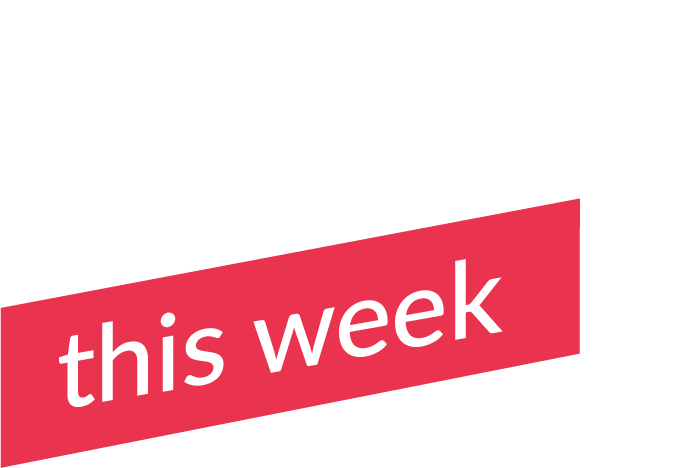Top of mind: Happy Sunday!
Nigerians have more phone numbers than smartphones.
And with mobile penetration on the rise and fintech startups competing to capture market share, OPay had its moment in the sun when Nigeria’s Central Bank introduced a new currency design, leaving Nigerians cash-strapped.
It’s a classic case of preparation meeting opportunity.
One big thing:
– How OPay became an icon in fintech.
Let’s get to it.
How OPay became an icon in fintech

In the first quarter of this year, Nigeria faced a cash crunch that sent merchants and consumers scrambling for alternatives. With its instantly recognisable name and famous mint green POS machines, OPay emerged as a top choice – and quickly stepped in to fill the gap left by Nigeria’s Central Bank.
Thirty-five million registered app users later, 500,000 agents, and a $2 billion valuation, OPay’s strategic decisions and deep understanding of the Nigerian market fueled its rapid growth.
I talked to the President and Co-CEO of OPay Nigeria, Olu Akanmu, about how OPay hacked the peer-to-peer market and established itself as a solid contender in Nigeria’s fintech industry.
OPay steps in
Nigeria’s Central Bank introduced new Naira notes before the presidential elections, restricting access to cash. While certain fintech companies struggled to meet demands, OPay seized the opportunity and onboarded users at an impressive speed.
Olu: OPay has a robust infrastructure and a natural advantage as a digital native platform. Our flexibility and agility helped us support the surge in demand during the cash scarcity and allowed us to meet the needs of our users quickly.
How phone numbers and BVN drove innovation for OPay
Nigerian regulators green-lit phone numbers as customer identifiers for fintech apps. So, a user needs a phone number and a Bank Verification Number (BVN) that uniquely identifies them to meet the threshold for Know Your Customer (KYC) standards.
OPay stepped up to lead innovation in this space.
Olu: The first foundation for payments is digital identity, but it’s limited in Africa, so phone numbers were the most accessible form of identity. What set us apart was providing a richer experience than other players trying to use USSD for this purpose. We focused on phone numbers and BVN as identifiers and were able to unlock payments for the non-smartphone market.
Is OPay Nigeria’s M-PESA?
Industry insiders have drawn parallels between OPay’s operations in Nigeria and M-PESA’s in Kenya – because both companies use phone numbers to receive and make payments.
Olu acknowledged the similarities but stated that Kenya and Nigeria are different markets, highlighting the difference between both companies.
Olu: We admire what M-PESA has accomplished in Kenya, but the markets are different. Nigeria’s competitive landscape, regulatory environment, and market maturity differ from when M-PESA launched in Kenya. As a result, we applied original thinking to tailor our approach to the challenges and opportunities of the Nigerian market.
So, our big inspiration are markets like China and India because these countries have some of the best financial inclusion innovations. Plus, we can learn best practices because our investors have built global businesses in these markets.
Nigeria is OPay Global’s largest market
OPay Global Group operates in Pakistan and Egypt, but Nigeria ranks the highest on the company’s leaderboard. While the spread between West Africa, North Africa and South Asia makes you wonder about OPay Global’s goals – Olu says these markets are fundamentally similar.
Olu: The common thread among the markets where OPay operates is that they are countries with large populations and a significant number of people who have historically been excluded from financial services. This disparity informs our decision to operate in these countries because our goal is to provide greater financial inclusion for those who need it most.
What to do when regulation strikes
A few years ago, OPay expanded its operations beyond fintech to include bike and car-hailing services with ORide and OCar and a logistics business, OExpress. However, these ventures were shut down due to regulatory constraints, and payments became OPay’s main play.
While OPay’s users saw this as a pivot to hone in on its fintech business, Olu explained that idea away.
Olu: Payments were always our focus. We did not pivot. Those services were value-added to support the main business. When we shut them down, we quickly adapted to the regulatory change and doubled down on the payment business. That decision paid off tremendously.
Will OPay become a bank someday?
While some fintech startups race to acquire more operating licenses and become banks in the future, OPay says its singular focus is maximising the potential of its current license as a Mobile Money Operator (MMO).
Olu: We have an opportunity to explore the scope of our operating license as a Mobile Money Operator. While financial exclusion is often discussed in terms of individual consumers, it’s an even bigger problem for merchants. With 41 million MSMEs in Nigeria – many of which lack access to digital payment collection, the merchant market presents a massive opportunity for us to make a difference.
Surviving regulation
Prominent fintech startups know you must become best friends with the government to survive. Buddy up, no public criticism, and you’ll stay in the government’s good graces.
I asked Olu how he does it and if he had any advice for emerging fintech founders.
Olu: Thanks to the regulators, Nigeria’s fintech industry has evolved rapidly in the last few years. We work with them and seek their guidance regularly. We zoom, get on calls, and fly to Abuja when necessary to get the face time we need.
My advice for emerging startups is to take the time to understand the regulator’s perspective and concerns before presenting your case, as this leads to a more empathetic response and valuable guidance from regulators. But it would be best to keep them updated on your product roadmap. There’s no surviving without it.
On rest
Leading an African unicorn is great work. But rest is essential. What happens when the President and Co-CEO shuts his laptop?
Olu: The last thing on my mind is numbers. I exercise, read poetry, and watch comedy. Sometimes, I listen to history podcasts, and I love music. I have an eclectic taste as long as the rhythm is good – I listen to everything from afrobeat to jazz, highlife, and gospel. You name it!
OPay’s ambition and a lesson in celebrating milestones
OPay’s year got off to a great start, and the company is maintaining momentum. Olu says his vision is for OPay to become the most significant player in fintech and serve as the bedrock for other companies’ operations.
And when they reach a milestone – the team celebrates.
Olu: 2023 has been our biggest growth year since we leveraged the tailwind of the regulatory environment. We acknowledge our milestones, and when we hit them, we celebrate with nice parties.
My vision is for OPay to become the dominant player in last-mile payments. As we build that foundation, we will create opportunities for more value-added services. I see us becoming the payment enabler for the larger fintech ecosystem.
Final thoughts: OPay is one of the most recognisable names in Nigeria’s fintech ecosystem, and for good reason. Spending time perfecting their product has delivered a fortune’s worth of free (word of mouth) marketing.
Olu says they’ve only completed about 40% of the grand vision. It’ll be fascinating to see what 60% more of this impact looks like.
God speed.
Thanks for reading! We’d love to hear your thoughts about this week’s issue.
Please respond directly to this email or find me on Twitter @fatuogwuche 🙂
Plus, follow us on Twitter @bigtechthisweek

